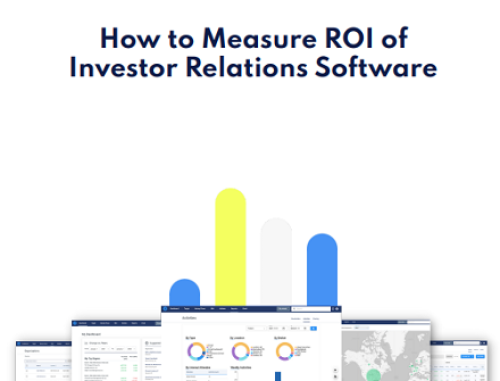Although 40 percent of companies surveyed by Citigate Dewe Rogerson (CDR) for its latest IR survey say they have restarted face-to-face meetings, the research was carried out before the new Omicron variant of Covid-19 was identified, so it is clear that face-to-face meeting numbers will now be pulled back.
Researchers find that more than half of IROs had planned to increase engagement with potential investors ‘in a renewed quest for fresh capital’. Now many will be moving back to the fully virtual – or hybrid – models they’ve come to rely on over the past 18 months.
CDR’s IR research – now in its 13th year – surveyed 250 companies from 49 countries and finds that 69 percent of IR teams had adopted a hybrid working model and expected that to be a long-term solution. It notes that ‘virtual meetings are expected to remain an important part of the engagement program.’
It adds that two thirds (64 percent) of respondents have held more ad hoc virtual meetings throughout the past year and 32 percent have held more virtual capital markets days or other group events. Almost half of the companies surveyed (47 percent) plan to host a capital markets day – virtual or in-person – by mid-2022, notes CDR.
The wide-ranging research covers everything from executive remuneration to shareholder activism and when companies expect to return to pre-pandemic guidance.
In addition to increasing virtual engagement in the past year, researchers find that 37 percent of companies increased their level of disclosure – though guidance remains a particular challenge. Just 14 percent say they plan to restore guidance to pre-pandemic levels by mid-2022. But less than a third (31 percent) actually say their approach to guidance has changed since Covid-19 first emerged.
CDR says that as part of the evolution in the way companies hold meetings – and as a response to increased pressure from activist investors and other stakeholders – ‘some companies have made greater efforts to ensure investors feel engaged and well-informed in the absence of in-person events. This has led to an emergence of events separate from the formal business of the AGM.’
It says 14 percent of firms held a shareholder engagement event separate from the AGM, with ‘the vast majority’ of those based in Europe. Eight percent are considering such ‘additional’ events for 2022.
The consultancy notes the benefits of virtual – or a mix of virtual and in-person – such as allowing companies to engage more with investors outside of key financial centers (29 percent of respondents say they have been doing this more).
‘This will allow companies to continue to benefit from increased efficiency driven by reduced travel, the opportunity to engage with the wider pool of investors on a more regular basis and more effective investor education through meeting attendance by more key executives from across the business,’ says CDR in its survey report. ‘Not to mention the environmental benefits of reduced air and road travel needed to achieve rising ESG commitments.’
The firm also acknowledges ‘limitations’ on connections that aren’t in-person, however.










